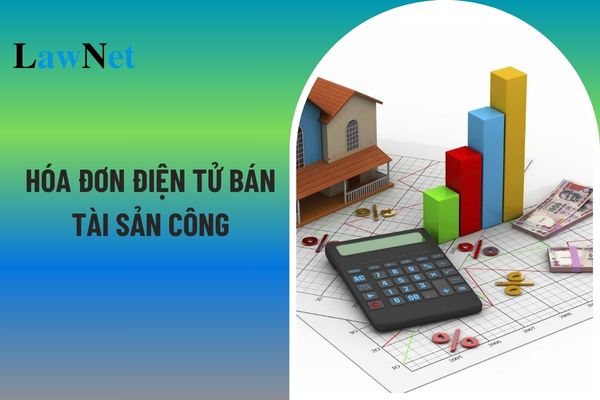Vietnam: Which types of public assets do e-invoices apply to? How many components does the e-invoice format have?
Vietnam: Which types of public assets do e-invoices apply to?
Pursuant to Article 8 of Decree 123/2020/ND-CP, e-invoices for selling public assets are used when selling the following assets:
- Public assets at agencies, organizations, and units (including state-owned housing);
- Infrastructure assets;
- Public assets allocated by the State to enterprises for management without being included in the State capital component at the enterprise;
- Assets of projects using State capital;
- Assets that are established as State ownership;
- Public assets recovered by decision of a competent authority or person;
- Materials and supplies recovered from the handling of public assets.

Vietnam: Which types of public assets do e-invoices apply to? How many components does the e-invoice format have? (image from the Internet)
Vietnam: How many components does the e-invoice format have?
According to Clause 2, Article 12 of Decree 123/2020/ND-CP, the composition of the e-invoice is regulated as follows:
e-Invoice Format
- The e-invoice format is a technical standard regulating the data type, data length of information fields for the purpose of transmission, retention, and display of e-invoices. The e-invoice format uses XML (eXtensible Markup Language) for sharing e-data between IT systems.
- The e-invoice format includes two components: the component containing business data of the e-invoice and the component containing digital signature data. For e-invoices with a tax authority code, there is an additional component containing data related to the tax authority code.
- The General Department of Taxation constructs and publishes the component containing business data of the e-invoice, the component containing digital signature data, and provides tools to display the contents of the e-invoice in accordance with this Decree.
....
Thus, the regulation above indicates that the e-invoice format consists of two components.
How are e-invoices retained in Vietnam?
Based on Clause 2, Article 6 of Decree 123/2020/ND-CP, the method for storing e-invoices is prescribed as follows:
Storage and retention of invoices and records
- Invoices and records are stored and retained to ensure:
a) Safety, security, integrity, completeness, without alteration or misrepresentation during the retention period;
b) Correct and sufficient retention term as per accounting law provisions.
2. e-invoices and e-records are stored and retained electronically. Agencies, organizations, and individuals are allowed to choose and apply a form of storage and retention of e-invoices and e-records suitable to their operational characteristics and technological application capacity. e-invoices and records must be readily printable or retrievable upon request.
- Invoices printed by tax authorities, self-printed, or commissioned to print must be stored and retained according to the respective requirements:
a) Unissued invoices and records are retained and stored in warehouses following retention policies for valuable records.
b) Issued invoices and records in accounting units are retained pursuant to accounting record storage regulations.
c) Issued invoices and records in organizations, households, individuals not being accounting units are retained and stored like private assets of those organizations, households, or individuals.
...
Thus, as per the regulation above, e-invoices are retained electronically.
What are requirements of authenticated e-invoices in Vietnam?
According to Clause 2, Article 17 of Decree 123/2020/ND-CP, the requirements for coded invoices issued by tax agencies are as follows:
- Full content of e-invoices as prescribed in Article 10 of Decree 123/2020/ND-CP.
- Correct format for e-invoices as specified in Article 12 of Decree 123/2020/ND-CP.
- Correct registered information as regulated in Article 15 of Decree 123/2020/ND-CP.
- Not in the case of suspension of usage of coded e-invoices by the tax agency as stipulated in Clause 1, Article 16 of Decree 123/2020/ND-CP.
What acts are prohibited in issuing invoices in Vietnam?
Based on Article 5 of Decree 123/2020/ND-CP, the following acts are prohibited in invoice issuance:
- For tax officials
+ Causing trouble, difficulty for organizations and individuals purchasing invoices and records;
+ Engaging in acts of cover-up or collusion with organizations or individuals to use illegal invoices and records;
+ Accepting bribes when inspecting or auditing invoices.
- For organizations, individuals selling and providing goods and services, and those with related rights and obligations
+ Committing fraudulent acts such as using illegal invoices or using invoices illegally;
+ Obstructing tax officials in their duties, specifically acts that harm the health or dignity of tax officials during invoice and record audits and inspections;
+ Unauthorized access, alteration, or destruction of information systems regarding invoices and records;
+ Bribing or performing other acts involving invoices and records for unlawful gain.

